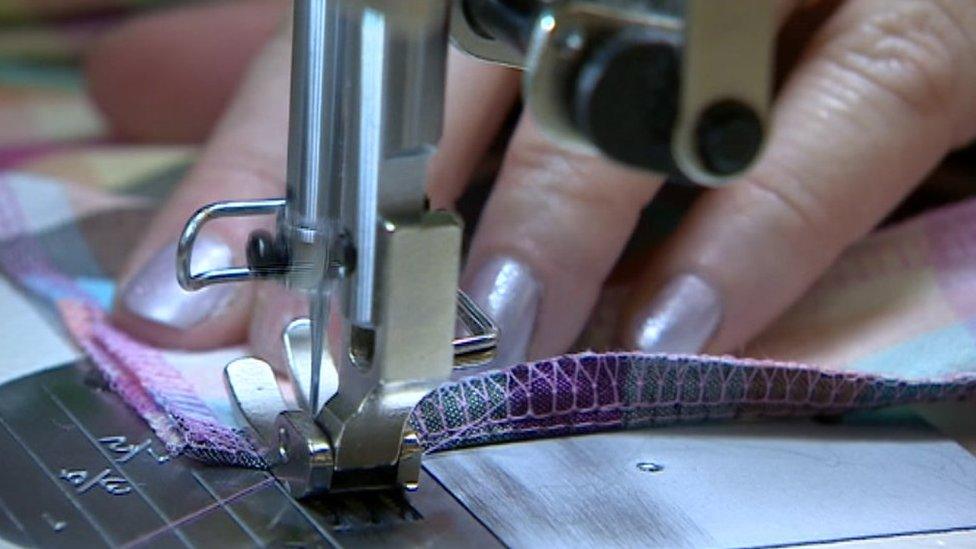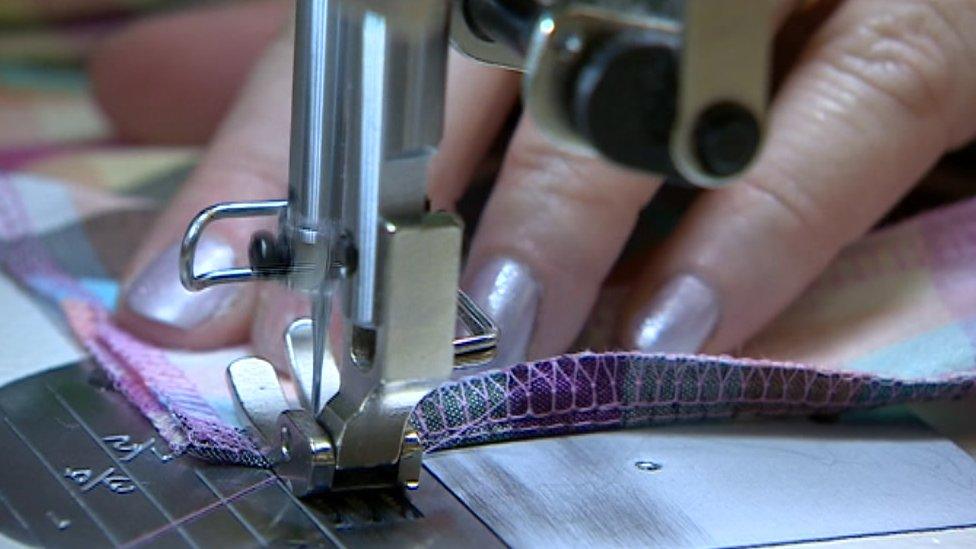Report calls for support for Leicester textile workers
- Published

The report calls on the government and retailers to focus on steps to improve workers' lives
Experts are calling on major retailers and government agencies to improve workers' lives and working conditions.
A new report by the University of Nottingham and De Montfort University was commissioned by the Garment & Textile Workers Trust (G&TWT).
Researchers behind the study, which has just been published, hope it will bring about change in the industry.
The trust was set up after Boohoo was criticised for conditions and workers' rights at its city suppliers.
It was given £1.1m by retailer Boohoo to spend on potential improvements.
'Isolation'
The study gathered views from those who work in the garment industry, with workers taking part in an anonymous questionnaire or interviews about their experiences.
It identified nine key areas the sector can improve upon, which will inform the trust's priorities for the coming year.
The nine areas include:
Providing a single contact point for workers wishing to make a complaint.
Establishing trusted support to advocate for workplace rights, including existing trade union initiatives but also drawing upon organisations that have experience in representing migrant workers.
Connecting workers with sources of community-based legal advice and support in a range of languages, including immigration, housing and welfare rights in addition to workplace rights.
Improving access to local educational services for workers and their families, particularly related to further education, and language support for younger children.
Connecting workers with sources of employment support, training, information and advice.
Engaging with employers to create high-quality jobs that are accessible to a wide range of workers, such as those with caring responsibilities or limited transport options.
Dr Alison Gardner, lead researcher from the Rights Lab at the University of Nottingham, said: "There are currently many constraints that stop [garment workers] from accessing fair pay and conditions.
"Our report has added to the existing knowledge about these issues, but importantly also points to solutions suggested by workers themselves.
"We hope the interventions outlined in our report can help to guide both local and national-level action in the years ahead."

Dr Alison Gardner said the voices of workers in the textile industry had previously not been heard
Kevin McKeever, chairman of the trust, said: "This research is an important addition to the body of knowledge on labour exploitation in the garment and textile industry and significant in listening to the voices of workers themselves."
He called on the government to form a single enforcement body.
The researchers reported that anti-exploitation measures had proved ineffective due to the isolation of workers, low expectations concerning the impact of raising concerns and insufficient multi-agency collaboration at local level.
Khudeja Amer-Sharif, chief executive of Shama Women's Centre, said: "This research has helped to identify positive solutions to address the endemic issues that female workers in the textiles garment industry have faced for generations."

Follow BBC East Midlands on Facebook, external, on Twitter, external, or on Instagram, external. Send your story ideas to eastmidsnews@bbc.co.uk, external.
Related topics
- Published16 November 2021
